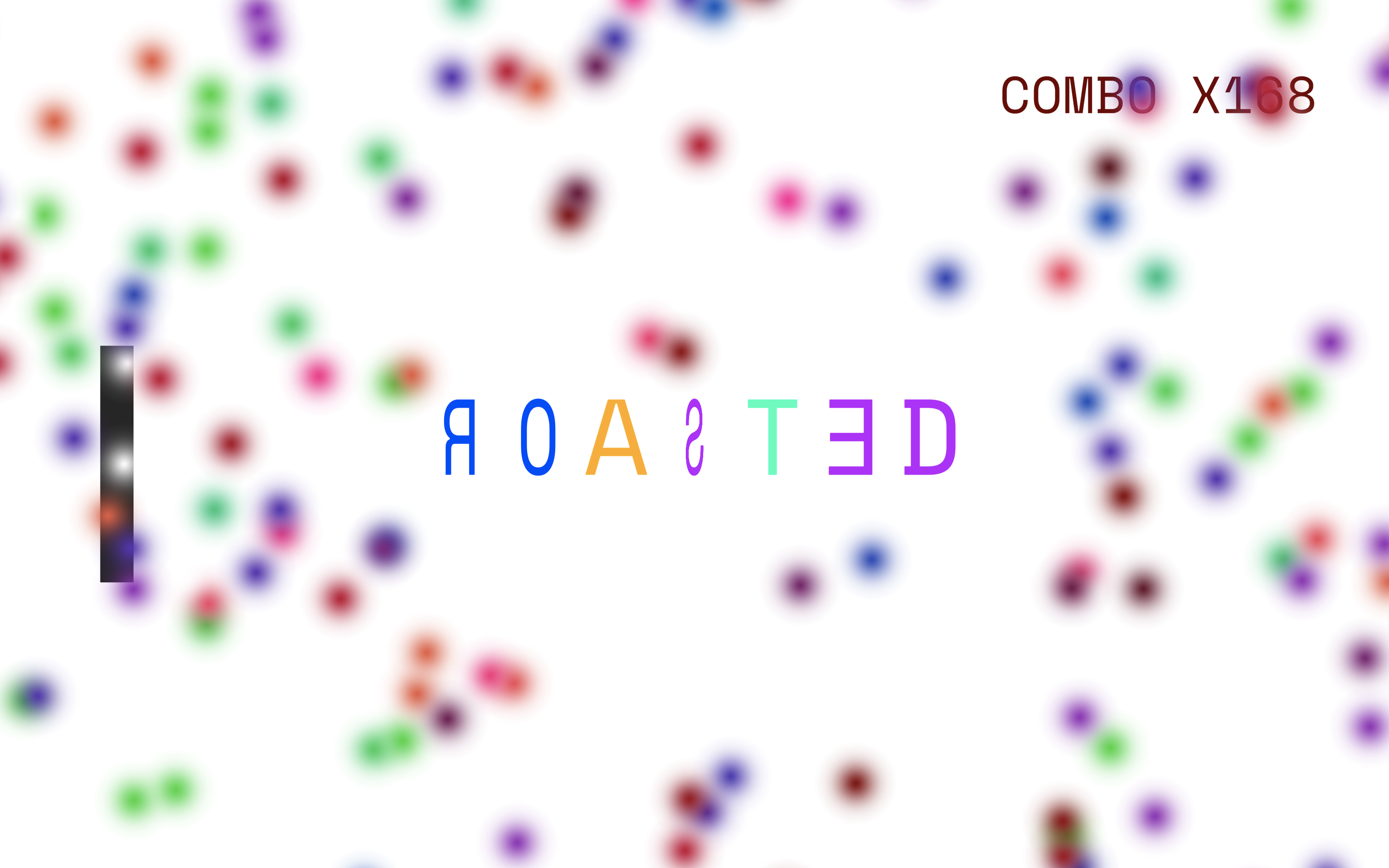Weekly Prototypes (Fall 2020)

| Dates | Fall 2020 |
| Role | Main Design, Main Engineer |
| Team | Pair assignment with different partner each week |
| Development Software/Tools | Unity |
| Summary |
|
During Fall of 2020, I made 8 prototypes for the Game Prototyping class at USC. Each prototype was made over the course of one week, each with a different theme and student partner.
A big takeaway from these prototypes was the importance of game feel and “juice.” My prototypes that received the most praise from my professors and peers were not the ones with the most sophisticated game loops or with the most complete features, but the ones that had controlled well and had visual and audio oomph.
Disco Typing is a prototype that I think did game feel and juice well. In Disco Typing, all the player has to do is type the words that show up on the screen. The twist is that when the player does well, visual and audio effects start to compound: the words start to flip and change color, the screen shakes more and more at every key stroke, and disco music plays louder and louder. So, while the length of the words do increase slightly as the game progresses, the primary difficulty is actually in discerning the word itself.
The game mechanics and sensory feedback create an addictive trance-like flow state. A large contributor to this is the heavy typewriter sound effect. Since it plays at each keypress, the beat it creates naturally matches the tempo of gameplay. When the player struggles, the tempo is slow and uneven, but when the player is breezing through words it sounds more like a freestyle drum solo. This rhythmic aspect is highlighted by how the player must press the enter key to confirm each word, the repetitive enter keystroke acts like an end of lyric or end of measure. This auditory satisfaction is complemented by the screen shake and the tactile sensation of the keyboard. As a result, the player is subconsciously incentivized to keep a steady pace, rather than playing it safe and double-checking their keypresses. This is also incentivized through a mechanic where the player is awarded bonus points for quickly typing words. Because the difficulty of the game is determined by the current score, the bonus on easier words also helps to get players to the appropriate difficulty level where they are challenged enough to have heightened focus on the game. Thus, the mechanics and feedback promote a playstyle where players are focused on smoothly typing the words, which can induce a flow state.
Although my partner and I were only able to implement a simple timed high score mode, playtesters seemed to have a blast with the prototype and reacted especially well to the audio and visual effects. It showed me how good game feel can sell a game, even with simple game mechanics.
